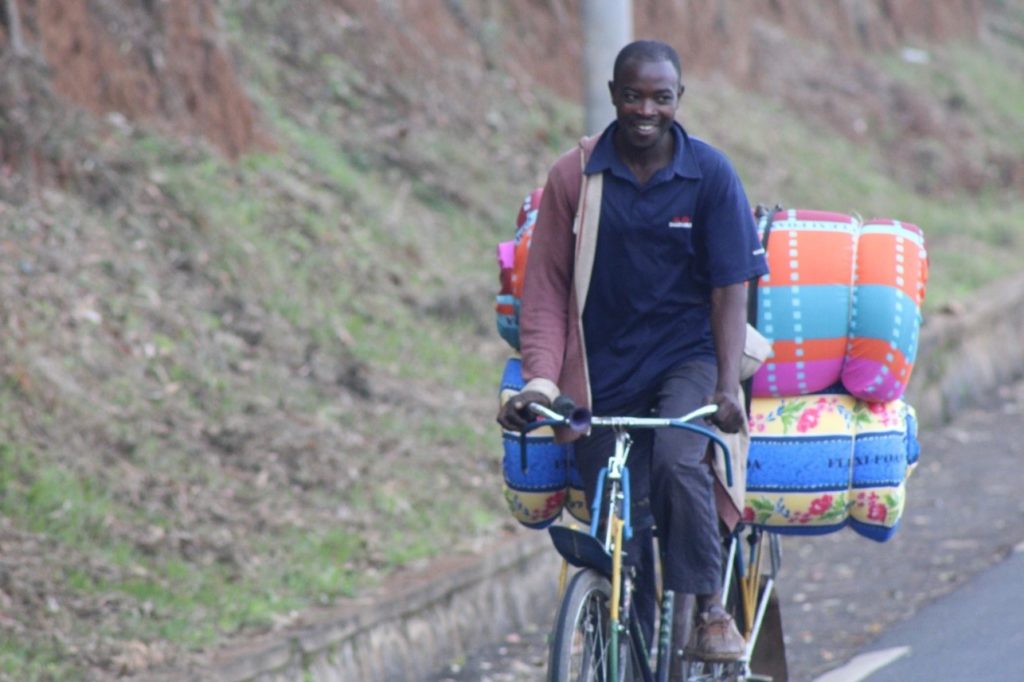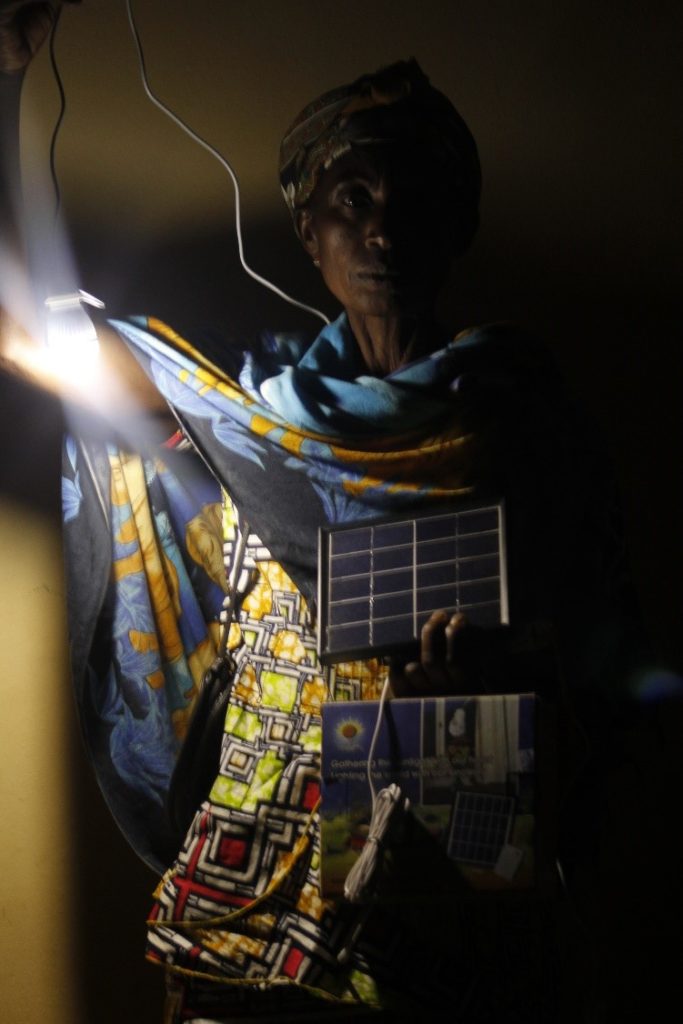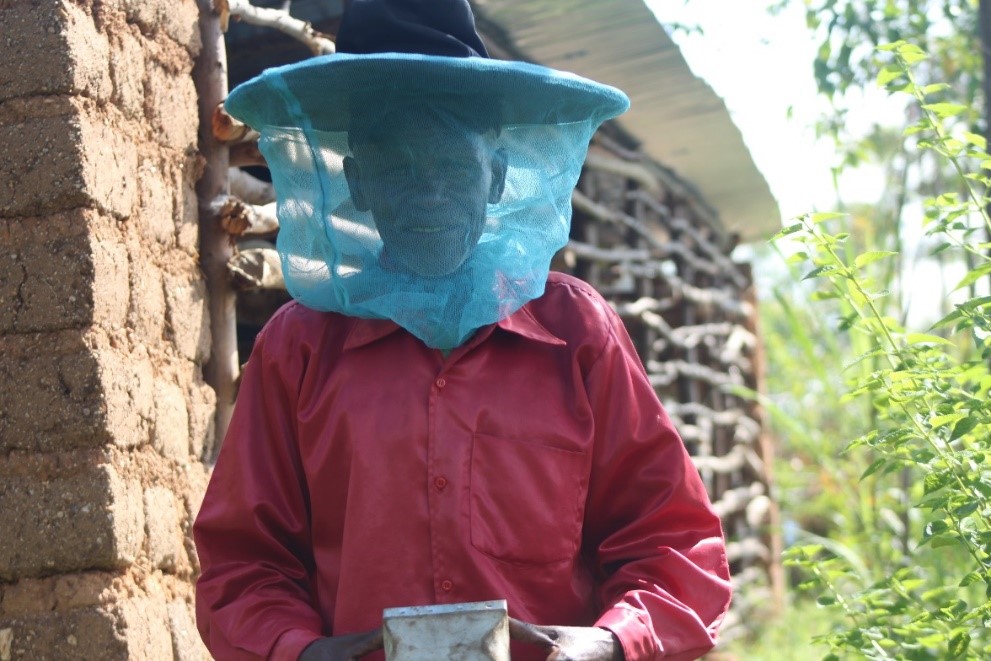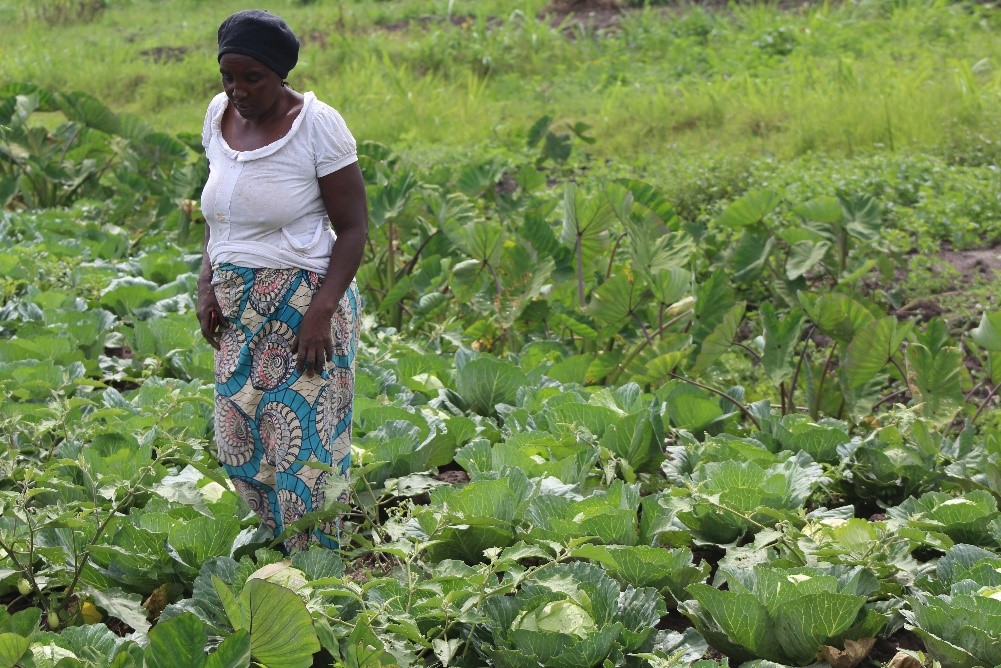
Through funding from the Good Gifts Catalogue, an initiative of the Charities Advisory Trust, we have extended our support to thousands of widows and orphans that are beneficiaries of our ongoing livelihoods program, enabling them to become more independent and self-sufficient.
Survivors Fund (SURF) aims to alleviate the impact of poverty on vulnerable survivors by strengthening their families to secure viable livelihoods. The funding from Good Gifts helps to set up income generating projects which empower communities to fight poverty and take more active role in determining their lives.
Many survivors have been supported, receiving livestock, agricultural materials, solar lights and cookers, meals for schoolchildren and much more. An example of survivors supported over the past year include:
Habimana – Supported by Good Gifts with a bicycle taxi
Habimana is one of the youths who received bicycles to set up a taxi business. He has a wife and 2 children. They live in Gatsata one of the suburbs of Kigali City.

Before getting the bicycle, Habimana did odd jobs working on construction sites and earned about £2 per day. Sometimes he did not have work and it was difficult to put food on his table for the family. After getting the bicycle, he earns about £3-3.50 daily and has no worries about being unemployed because he now has a bicycle and is member of the Bicycle Taxi Association where he contributes about 10p daily. After 2 years he will be able to borrow money from the cooperative and start a business for his wife.
Habimana commented: “Now that I have my own bicycle, I am assured of earning a living for my family because I can work every day and I plan to help my wife to start a small business selling in the market. I am now excited for our future ahead.”
Mahoro – Supported by Good Gifts with a solar light
Solar lights are now replacing kerosene lights in rural Rwanda. Mahoro is one of the widows who has received solar lights. She lives in a rural village and lives on less than £1 a day. For her to afford kerosene was not easy. As a result, she and her family had to eat their night meal before it got dark.

“I have two children who stay with me. Before receiving the solar light, they did not have an opportunity to do their homework at night, but now because of the solar light they can study at home. Also, I am 65 years old, and it is my first time to have a light which does not have smoke. I am sure this will help me to have better eyes”.
The solar light she received has a provision for charging mobile phones and she can generate a small income from her neighbours who do so.
Musoni – Supported by Good Gifts with bee hives
Musoni is head of a group of 6 people who do bee farming in Muhanga District, Southern Rwanda. He has been doing beekeeping for 7 years. Beekeeping is popular due to the high market demand for honey in Kigali. The group was supported to make modern bee hives and build a shed where the bee hives are kept.

Musoni says that the group does other work in addition to the beekeeping. “With beekeeping you do not have to work on the project all day. You can do other things and do bee farming for honey at the same time.” They have 50 bee hives and harvest 40 kilograms of honey every four months. Before receiving support, they had 5 bee hives and harvested about 4 kilograms. They sell a kilo of honey for 3,500 Rwanda Francs (around £3.50), so they make about £140 every four months. The plan is to improve their farming to be able to produce 60 kilograms of honey every four months.
Uwimana – Supported by Good Gifts with seeds
Uwimana is sixty years old. She lives in Kamonyi District near a swamp area. She received support to grow cabbage. In her village there is a secondary school which is buying the cabbage from her. She is now able to make 20,000 Rwanda Francs (around £20) per week. Before doing the vegetables farming Uwimana grew yams which take long to develop and have a very limited market compared to vegetables.

Uwimana says: “The school is located near my home which makes it easy for me to deliver the cabbages and means that there is little cost to transport them which helps to increase my income even more.”
The above stories represent just some of the many people helped through a Good Gifts grant and demonstrate how the grants are supporting livelihoods and are being used to help people out of poverty and improve their lives. The support from Good Gifts extends options for economic empowerment to many survivors. This has improved the lives of many survivors and their dependent relatives. We hope to extend even more support to survivors through the Good Gifts programme in 2019.
